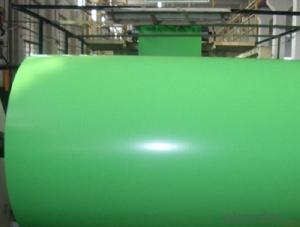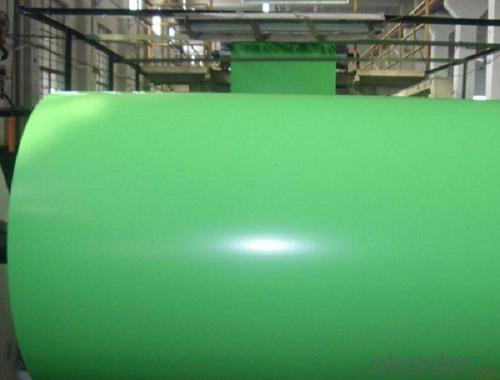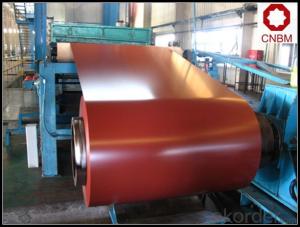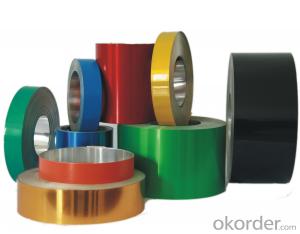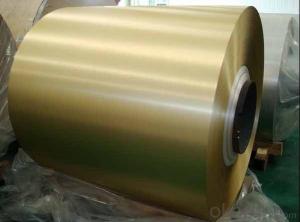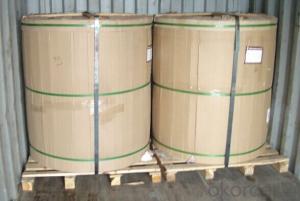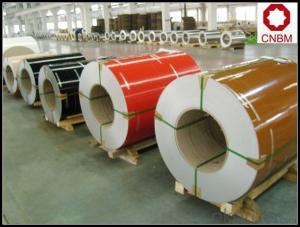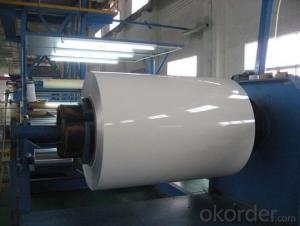Aluminum Coil Slitter for Color Coated Aluminium Coil for Aluminum Roller Shutter, 0.2 to 7mm
- Loading Port:
- Shanghai
- Payment Terms:
- TT OR LC
- Min Order Qty:
- 2.5
- Supply Capability:
- 5000 m.t./month
OKorder Service Pledge
OKorder Financial Service
You Might Also Like
Specification
Color Coated Aluminium Coil for Aluminum Roller Shutter, 0.2 to 7mm
l Product Introduction
Aluminium Coil is widely used in manufacturing aluminum thin sheet and aluminum foil. It is suitable for further machining with original standard quality. It is easy to be controlled and be manufactured to according to requirements.
l Product Specification
Product | Alloy | Thickness (mm) | Width(mm) |
ID (mm) | Application | |
Coating aluminum coil
| 1060, 1050, 1145,1235, 1035, 1100, 3003, 3103, 8011, 5052, 5005 | 0.1-2.0 | 50-1550 |
75,150, 200,300, 400,505 |
decoration, roofing
| |
1) Coating type: PVDF,PE,ACRYLIC.EPOXY.....
2) Gloss: According to customer request.
3) Coating thickness (not including aluminium base): From 6 micron to 38 micron are available.
4) Flexibility (T-bend): 2T
l Packaging & Delivery
Packaging detail: Standard seaworthy exporting carton, Wooden pallets, waterproof paper and plastic coverage or as customer's requirements
Delivery detail: about 25 days from received oiginal L/C or advanced payment
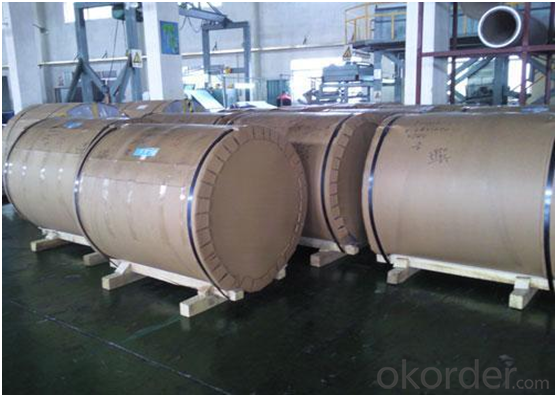
l Company Profile
CNBM International Corporation, China National Building Materials (Group) Corporation, is one of the largest companies in China building material & equipment industry, with 42,800 employees and sales in 2005 of US Dollar 4.395 billion. In 2006, China National Building Material Company Limited was listed on Hong Kong Stock Market with the stock code as 3323.
Color coated aluminium coil is one of the popular product in the market of CNBM. With advanced technology and equipment, CNBM has sold its hight quality color coated aluminium coil to the world.
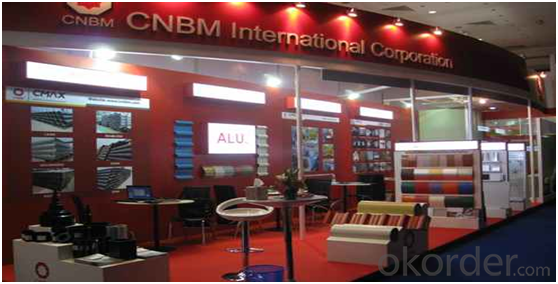
l CNBM World Wide
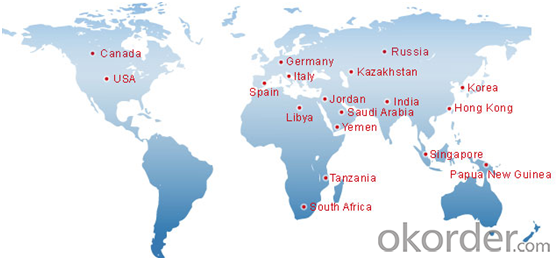
l Product Images
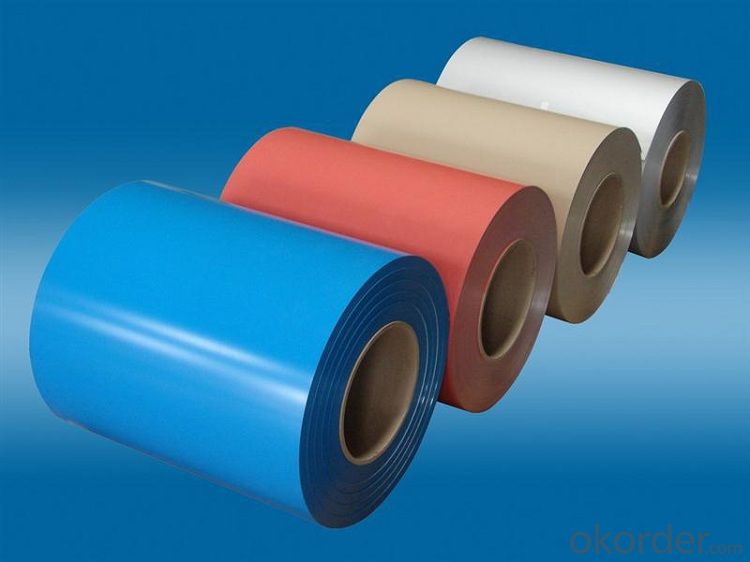
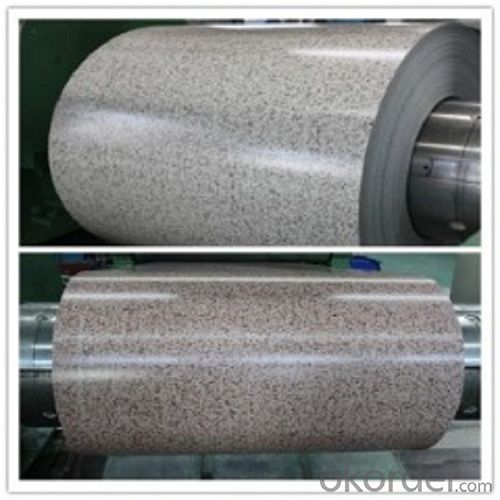
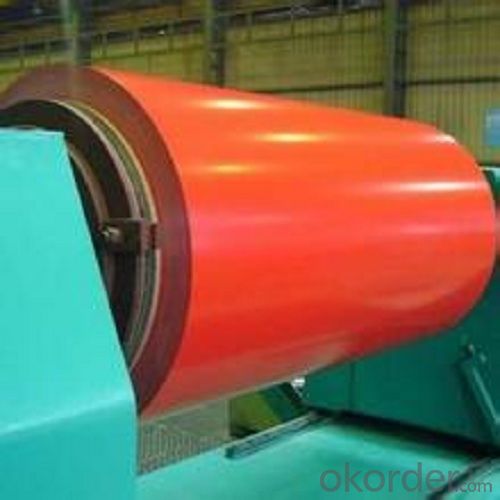
l Certificates
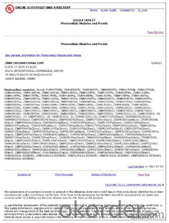
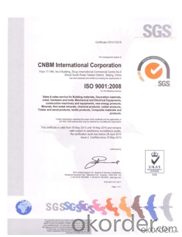
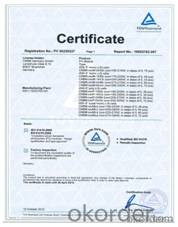
l FAQ
Q: Do you provide free samples?
A: Yes, free samples will be sent to you on freight at destination.
Q: Can I get your latest products catalogue?
A: Yes, it will be sent to you in no time.
Q: What is the MOQ?
A: 2.5 tons
Q: What are your payment terms?
A: We accept L/C, T/T.
- Q: Are there any limitations on the surface treatment of aluminum coils?
- Yes, there are limitations on the surface treatment of aluminum coils. One limitation is the type of surface treatment that can be applied to aluminum coils. Aluminum coils can be treated with various surface finishes such as anodizing, painting, and powder coating. However, not all surface treatments are suitable for all applications. For example, anodizing is a durable and corrosion-resistant finish, but it may not be suitable for applications that require a specific color or design. Similarly, painting and powder coating can provide a wide range of colors and aesthetics, but they may not provide the same level of durability as anodizing. Another limitation is the size and shape of the aluminum coils. Surface treatment processes may have limitations in terms of the size and shape of the aluminum coils that can be treated. For example, anodizing is typically done in tanks or racks, which may have size restrictions. Similarly, painting and powder coating processes may require specific equipment or facilities that may not be able to accommodate large or irregularly shaped coils. Additionally, the condition of the aluminum surface can also impact the effectiveness of the surface treatment. Aluminum coils may have imperfections or surface defects that can affect the adhesion and durability of the surface treatment. Proper cleaning and preparation of the aluminum surface are essential to ensure the effectiveness of the surface treatment. In summary, while there are various surface treatments available for aluminum coils, there are limitations in terms of the type of treatment that can be applied, the size and shape of the coils, and the condition of the aluminum surface. It is important to consider these limitations and select the most suitable surface treatment based on the specific requirements and constraints of the application.
- Q: What is the maximum width of aluminum coils?
- The maximum width of aluminum coils is subject to variation based on several factors, including the manufacturing process, the specific grade and type of aluminum, and the capabilities of the equipment employed. Nevertheless, in broad terms, the maximum width of aluminum coils can span from a few inches to multiple feet. Industrial coil lines ordinarily possess the capacity to handle widths up to 72 inches, whereas specialized machinery might be capable of accommodating even wider coils. To ascertain the precise maximum width applicable to a specific application, it is crucial to consult with the manufacturer or supplier.
- Q: How are aluminum coils protected against chemical exposure?
- Various methods are employed to safeguard aluminum coils from chemical exposure. One prevalent approach involves applying a protective coating or finish to the coil's surface. This coating serves as a barrier, shielding the aluminum from potentially harmful chemicals and preventing direct contact and corrosion. Another technique is anodization, whereby the aluminum surface is treated electrolytically to create a layer of oxide. This oxide layer not only provides excellent resistance against chemical exposure but also enhances the overall durability of the coils. Anodized aluminum coils find extensive use in industries like construction, automotive, and aerospace, where chemical resistance is of utmost importance. Additionally, aluminum coils can be safeguarded by employing specific alloys designed to withstand chemical corrosion. These alloys incorporate additional elements, such as copper or magnesium, which bolster the aluminum's resistance to chemical attack. By carefully selecting the appropriate alloy composition, manufacturers can ensure that the aluminum coils are better equipped to endure chemical exposure. In summary, protecting aluminum coils from chemical exposure necessitates a combination of protective coatings, anodization, and the use of corrosion-resistant alloys. These measures play a vital role in prolonging the lifespan of the coils and maintaining their performance even in harsh chemical environments.
- Q: What are the recognized standards that dictate the quality of aluminum coil?
- <p>Yes, there are several standards that define the quality of aluminum coil. These include ASTM B209, which specifies requirements for aluminum and aluminum alloy flat sheet, coil, and plate for general usage. ASTM B210 covers aluminum and aluminum alloy sheet and plate for heat-treating. Additionally, EN 485 is a European standard that specifies the requirements for aluminum and aluminum alloy cold-rolled sheets, strips, and plates. These standards outline dimensions, chemical composition, mechanical properties, and other quality aspects to ensure the material meets industry requirements.</p>
- Q: How do aluminum coils resist corrosion?
- Aluminum coils are able to resist corrosion due to their unique chemical composition and protective oxide layer. Aluminum is a highly reactive metal, but it forms a thin layer of aluminum oxide on its surface when exposed to air. This oxide layer acts as a protective barrier, preventing further reaction with the environment. This layer is self-repairing and continues to form even when it gets damaged, providing long-lasting protection against corrosion. Additionally, aluminum coils can be further protected by applying coatings or treatments that enhance their resistance to corrosion. These coatings act as an additional layer of defense, shielding the coils from potential corrosive agents. Overall, the combination of the natural oxide layer and optional coatings makes aluminum coils highly resistant to corrosion, ensuring their durability and longevity in various applications.
- Q: How much cube is the 0.9mm aluminum rolling?
- This is a common problem. Anyone who had received high school education can calculate it very quickily. One way is to calculate sectional area with circular area, then times the thickness of the aluminum rolling. Another way is to use the outer diameter circular area to subtract the core area and then times the thickness of aluminum rolling.
- Q: What are the surface treatment options for aluminum coils?
- There are several surface treatment options available for aluminum coils, depending on the specific requirements and desired outcomes. Some common options include: 1. Anodizing: This is a widely used treatment method that involves creating a protective oxide layer on the surface of the aluminum coil. Anodizing provides corrosion resistance, improves durability, and allows for color customization through dyes. 2. Painting: Aluminum coils can be coated with various types of paint to enhance their appearance, provide additional protection against corrosion, and improve resistance to UV radiation. Both liquid and powder coatings are available, with different finishes and levels of durability. 3. Coil coating: This is a continuous process where a coating material is applied to the aluminum coil's surface. The coil is then cured, resulting in a uniform and durable coating. This treatment option offers a wide range of finishes, colors, and special effects. 4. Laminating: By applying a protective film or sheet onto the surface of the aluminum coil, laminating can enhance its resistance to scratches, abrasion, and chemicals. This treatment is often used in applications where the coil may come into contact with harsh environments. 5. Brushing or polishing: These mechanical treatments can give the aluminum coil a desired texture, such as a brushed or mirror-like finish. Brushing creates a pattern of parallel lines, while polishing results in a highly reflective, smooth surface. 6. Chemical conversion coatings: These coatings are typically applied as a pre-treatment before painting or as a standalone treatment. They enhance corrosion resistance and provide a base for subsequent coatings, such as paint or powder coating. These are just a few examples of the surface treatment options available for aluminum coils. The choice of treatment will depend on factors such as the desired appearance, level of corrosion resistance, durability, and the specific application requirements.
- Q: Can aluminum coils be used in food packaging?
- Indeed, food packaging can make use of aluminum coils. Aluminum, a secure and adaptable substance, has enjoyed extensive usage in the food packaging sector for numerous years. It provides numerous advantages, including its lightweight nature, resistance to corrosion, and exceptional thermal conductivity. These qualities render it perfect for food packaging scenarios that prioritize the maintenance of food product quality, freshness, and safety. Aluminum coils can be conveniently molded into various shapes and dimensions, permitting tailored packaging solutions. Furthermore, aluminum qualifies as a sustainable material due to its 100% recyclability, further augmenting its allure for food packaging purposes.
- Q: How are aluminum coils used in the production of automotive parts?
- Aluminum coils play a crucial role in the production of automotive parts. Due to their lightweight and corrosion-resistant properties, aluminum coils are extensively used in the manufacturing of various automotive components. One of the main applications of aluminum coils in the automotive industry is in the production of body panels. These coils are processed into sheets, which are then formed and shaped into body panels such as hoods, doors, fenders, and roofs. The lightweight nature of aluminum helps to reduce the overall weight of the vehicle, resulting in improved fuel efficiency and better handling. Aluminum coils are also used in the production of heat exchangers for automotive air conditioning systems and radiators. The excellent thermal conductivity of aluminum allows for efficient heat transfer, ensuring optimal cooling performance. This helps to maintain the desired temperature in the vehicle's interior and prevent engine overheating. Additionally, aluminum coils are utilized in the production of various engine components. They are widely used in the manufacturing of cylinder heads, engine blocks, and intake manifolds. The high strength-to-weight ratio of aluminum makes it an ideal material for these applications, as it provides strength and durability while reducing the overall weight of the engine. Moreover, aluminum coils are used in the production of suspension components such as control arms and subframes. The lightweight nature of aluminum allows for better suspension performance, resulting in improved handling and a smoother ride. In summary, aluminum coils are extensively used in the production of automotive parts due to their lightweight, corrosion-resistant, and high-strength properties. They are employed in the manufacturing of body panels, heat exchangers, engine components, and suspension parts, contributing to the overall performance, efficiency, and durability of vehicles.
- Q: Can aluminum coils be used in the production of heat sinks?
- Yes, aluminum coils can be used in the production of heat sinks. Aluminum has excellent thermal conductivity, making it an ideal material for heat dissipation. Coiling the aluminum into a specific shape allows for increased surface area, enhancing the heat transfer capabilities of the heat sink.
Send your message to us
Aluminum Coil Slitter for Color Coated Aluminium Coil for Aluminum Roller Shutter, 0.2 to 7mm
- Loading Port:
- Shanghai
- Payment Terms:
- TT OR LC
- Min Order Qty:
- 2.5
- Supply Capability:
- 5000 m.t./month
OKorder Service Pledge
OKorder Financial Service
Similar products
Hot products
Hot Searches
Related keywords
